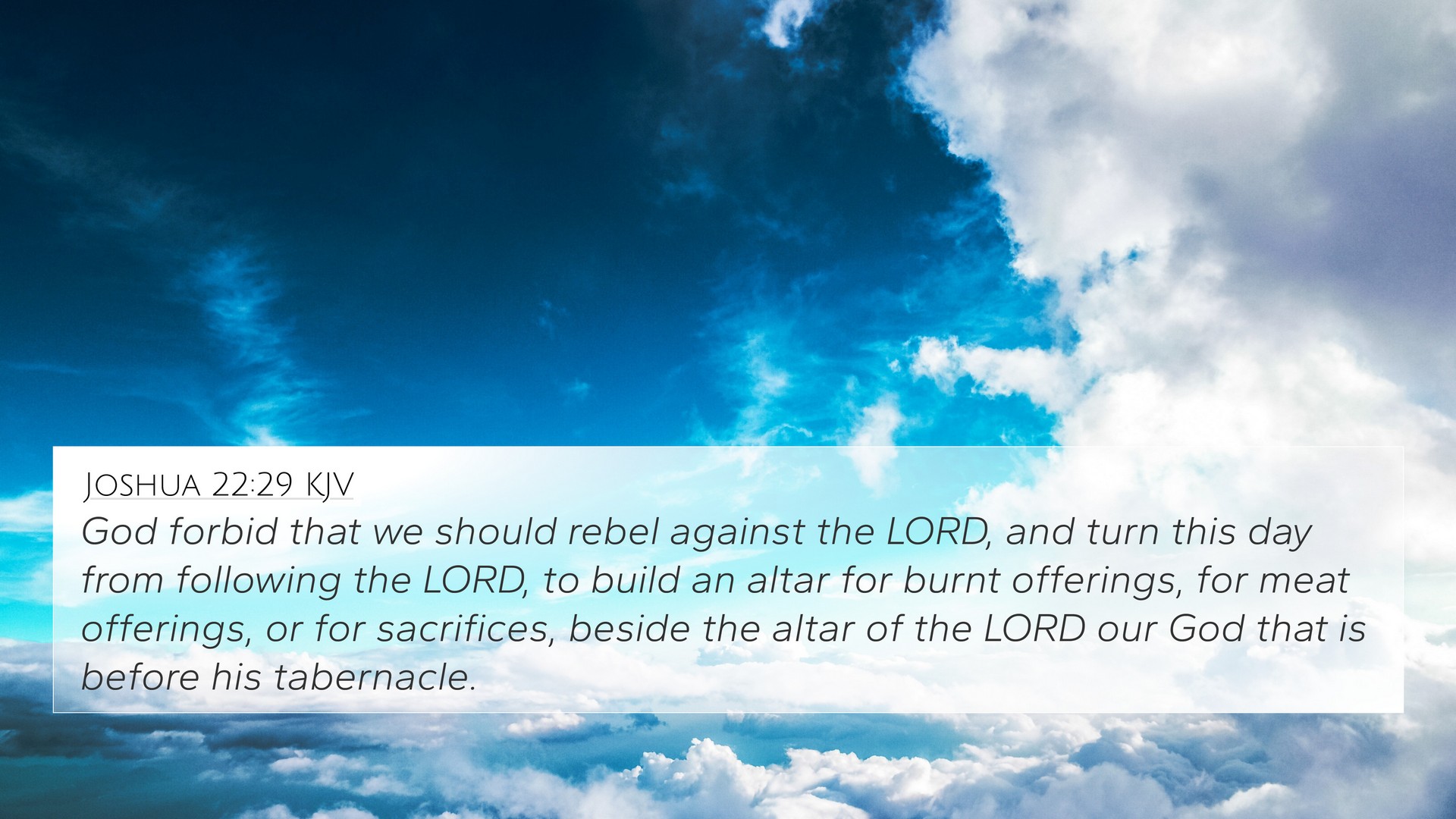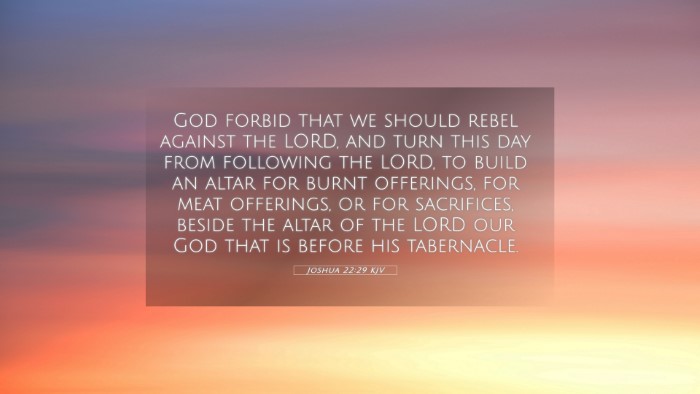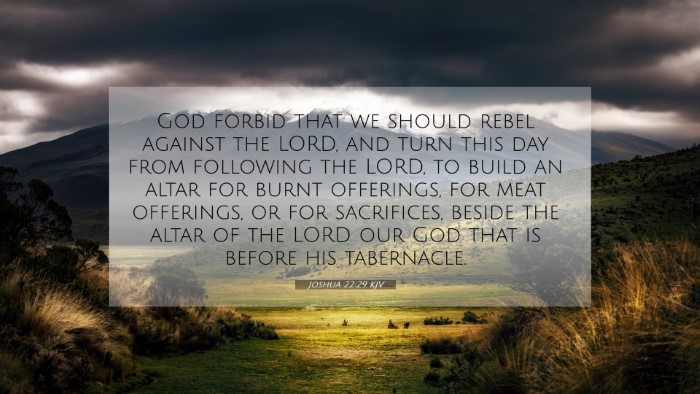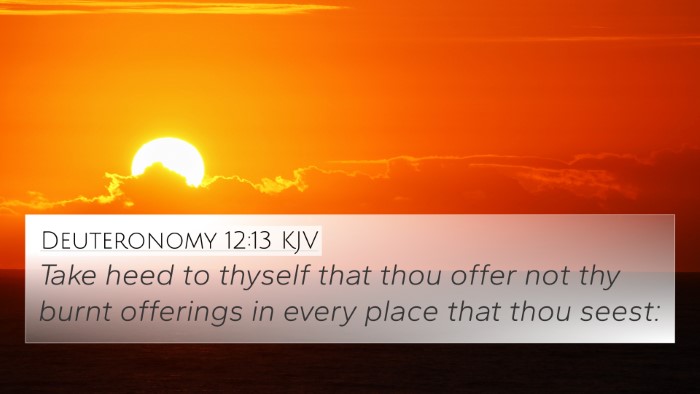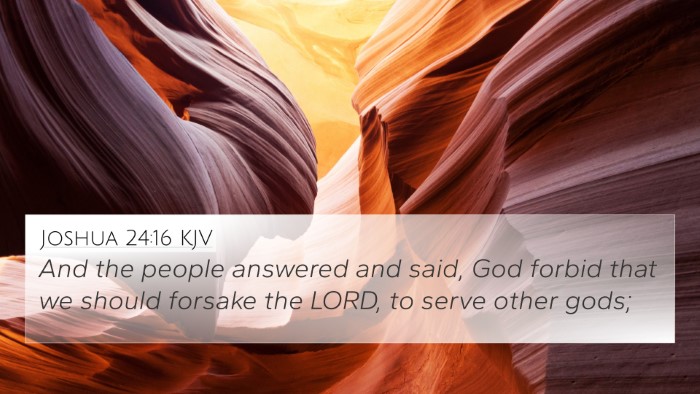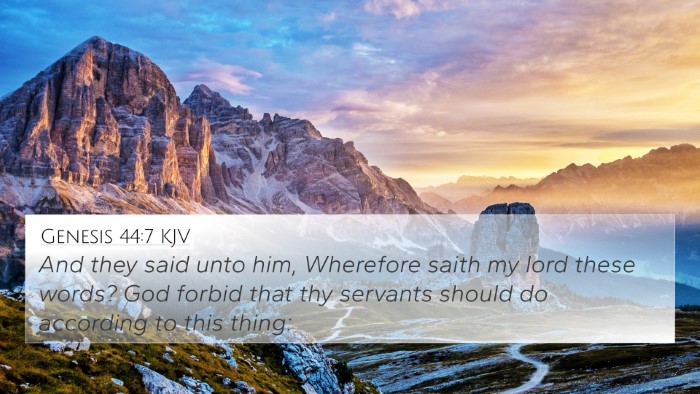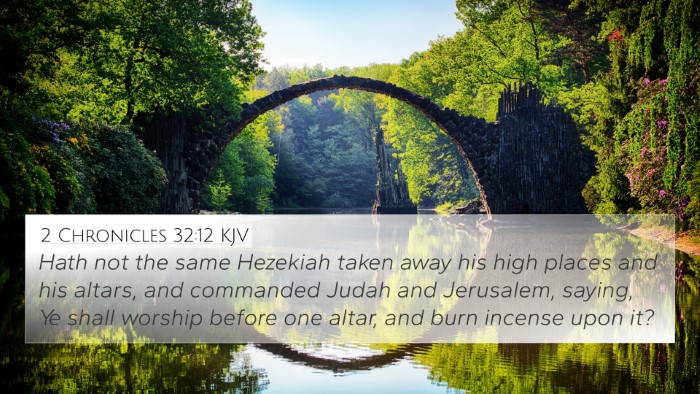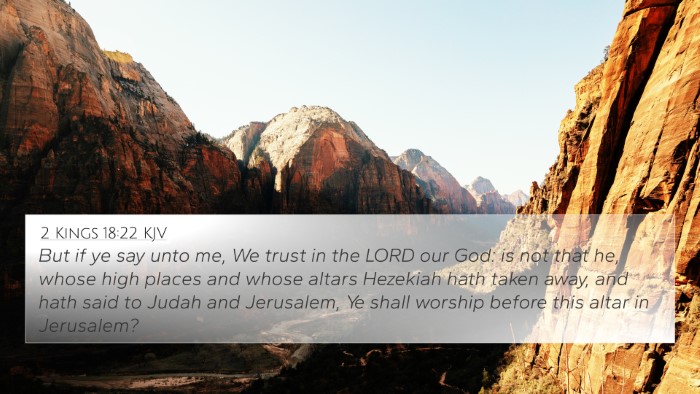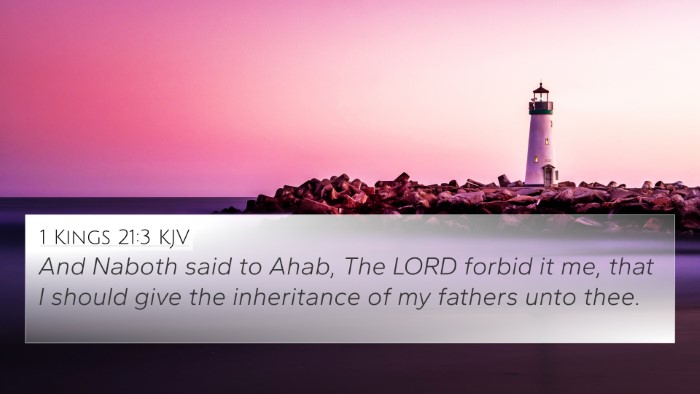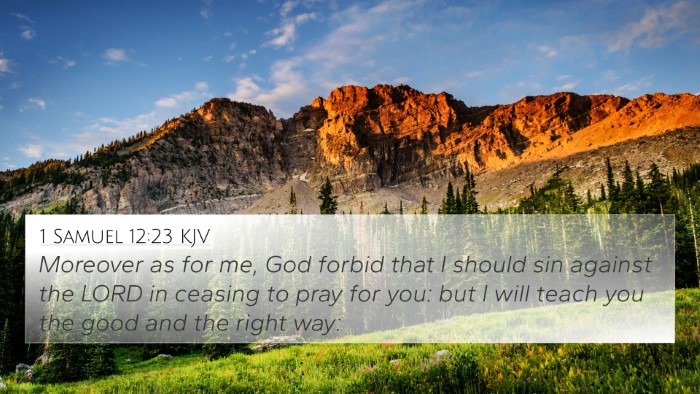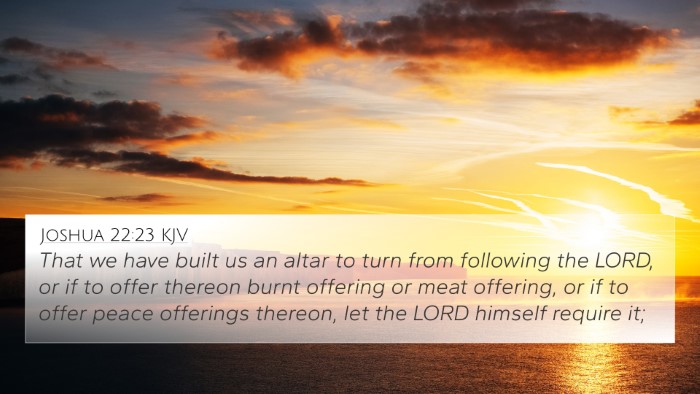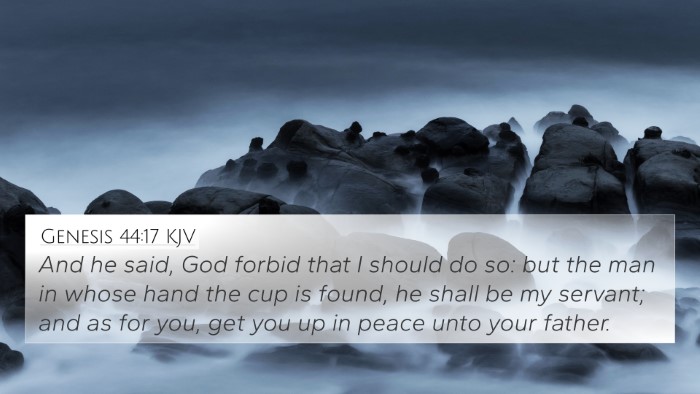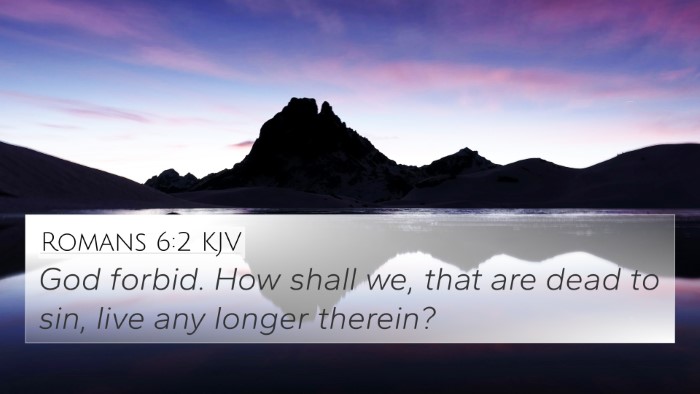Understanding Joshua 22:29
Joshua 22:29 states, "God forbid that we should rebel against the Lord, and turn this day from following the Lord, to build an altar for burnt offering, for meat offerings, or for sacrifices, beside the altar of the Lord our God that is before his tabernacle." This verse conveys a strong message about the importance of faithfulness to God and the worship practices He has ordained.
Context and Significance
This verse is part of a larger narrative where the tribes of Reuben, Gad, and half of the tribe of Manasseh build an altar near the Jordan River which raises concern among the other Israelites. The fear is rooted in a potential rebellion against God's commandments regarding worship and sacrifice, as seen in the established Tabernacle in Shiloh.
Commentary Insights
-
Matthew Henry:
Henry emphasizes that the building of this altar was misinterpreted as an act of rebellion. The Israelites wanted to ensure the unity of worship and the correct understanding of how the altar was used. The act symbolizes not just a physical altar but a spiritual commitment to the true God.
-
Albert Barnes:
Barnes reflects on the gravity of the Israelites' concern about idolatry and the importance of maintaining the distinctiveness of their worship. He highlights that the altars were meant to serve God and not for personal or sinful motives.
-
Adam Clarke:
Clarke discusses the broader implications of this event, sharing that the tribes intended to show their unity with the other Israelites. His commentary points to the importance of understanding intentions behind actions and how easily suspicion can arise.
Thematic Connections in Scripture
This verse is rich with thematic connections that speak to the nature of worship, the significance of obedience, and the importance of communal identity among God's people. Below are some relevant Bible verses that relate closely to Joshua 22:29:
- Exodus 20:3-5: Discusses the command not to have other gods before God, emphasizing faithfulness.
- Deuteronomy 12:5-14: Instructions on proper worship in the place God chooses, reinforcing the importance of obedience to God's commands.
- 1 Samuel 15:22: Indicates that obedience is better than sacrifice, underscoring the primacy of following God's will.
- Hebrews 13:15: Encourages believers to offer sacrifices of praise, linking back to the concept of proper worship.
- John 4:24: States that true worshippers will worship God in spirit and truth, aligning with the principles taught in Joshua.
- Acts 15:20: Details early Christian understanding of how to maintain faithfulness to God amidst different cultural practices.
- Romans 12:1: Urges believers to present their bodies as living sacrifices, an echo of worship that transcends physical altars.
Cross-Referencing Biblical Texts
Understanding Joshua 22:29 through cross-references enriches our study of the Bible by revealing how interrelated the scriptures are. Identifying connections between Old and New Testament scriptures gives us insight into the continuity of God's message.
Tools for Cross-Referencing
Studying connections within scripture can be enhanced through the use of:
- Bible Concordance: A tool for finding verses that contain specific words and themes.
- Bible Cross-Reference Guide: Helps readers find related verses across different books of the Bible.
- Comprehensive Bible Cross-Reference Materials: Resources that provide deeper cross-referencing options, aiding in thematic studies.
- Cross-Referencing Bible Study Methods: Techniques that can be adopted to deeply analyze scriptural relationships.
- Bible Chain References: A sequential approach to tracing themes across scriptures for deeper understanding.
Concluding Thought
As seen in Joshua 22:29, the priority of worship, dedication to God, and the avoidance of rebellion against God's preordained ways is critical for the life of the believer. Engaging in comparative Bible verse analysis allows us to draw parallels and themes that run throughout the scriptures, reinforcing the importance of maintaining purity in worship and unity within the body of believers.
